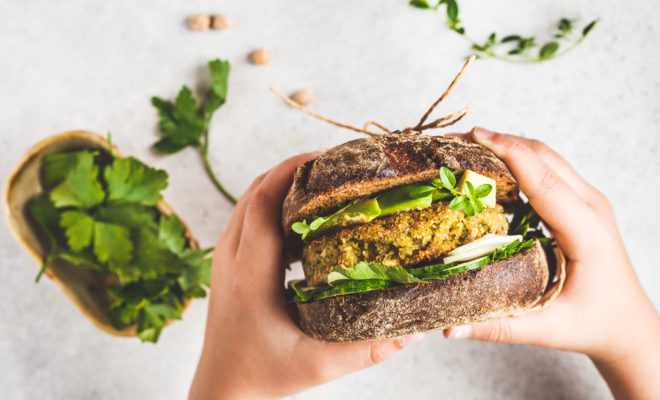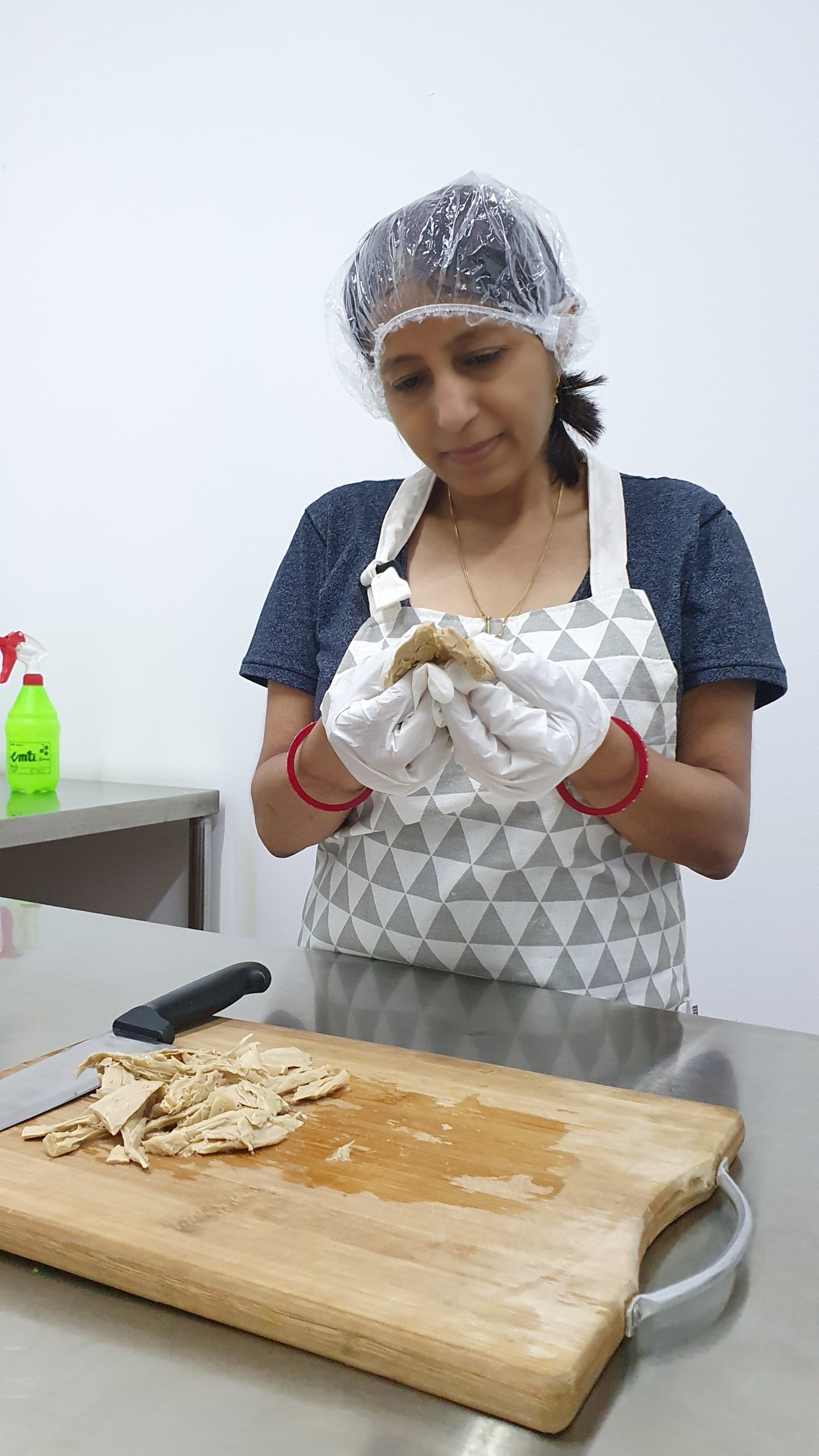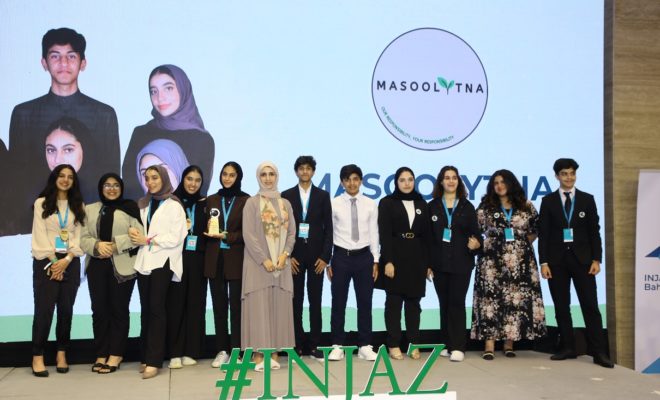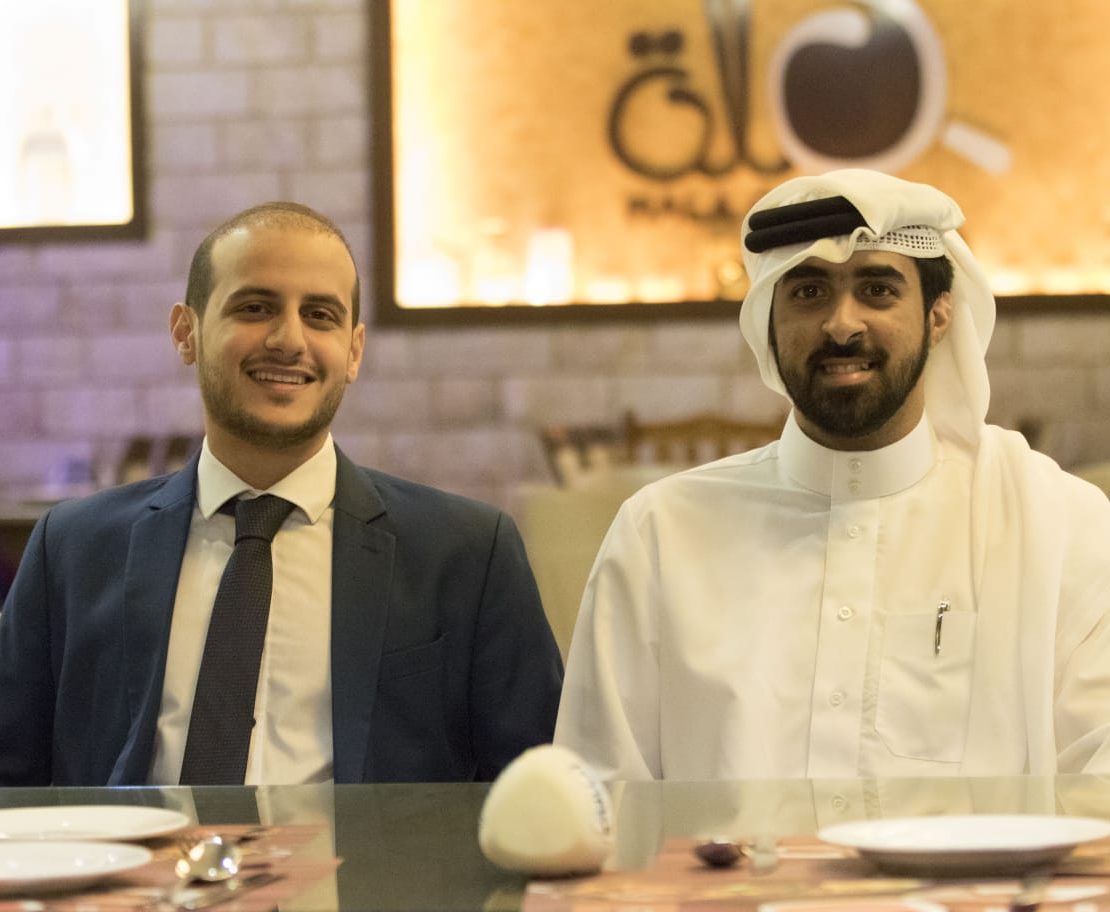Food free from chemicals and cruelty: An Interview with Shandi Global

BEntrepreneur sits down with Gaurav Sharma of Shandi Global to talk about their product which is plant-based meat analogues, the future of food, and how science can be used for good.
-
Plant-based meat analogues definitely sound intriguing—please tell us more about this, the company Shandi Global—and why you started the business.
Why we are doing this?
The recent revelation about the association of serious health risks with processed meat has created greater interest among consumers to reduce their meat consumption. On the other hand, livestock farming to meet the food demand for a growing population possesses a serious threat to climate and potable water supply. A plant-based diet could be an answer to future food demand and avoid the climatic consequences of livestock farming.

Plant-based proteins are not new; they have been a source of protein for vegetarians and poor people since 11000 BC. Being vegetarian since birth, and coming from a lower-middle-class family we have been consuming lentils and beans as a low-cost source of protein. For many people earning less than a dollar per day, lentils with rice or bread are a daily diet and meat is a luxury. This confirms that plant-based food will be a sustainable food option for the growing population in the upcoming centuries.

However, the purpose of plant-based food is forgotten! Products sold as plant-based meat alternatives today do not assure HEALTHY FOOD FOR EVERYONE. Most products sold in the market as plant-based meat alternatives are not meat alternatives, they are alternatives of a ready-to-eat processed meat product like burger patties, nuggets etc. A plant-based burger sold at five to 10 dollars is made from 100 gm lentils and bean which cost less than 20cents; this can’t be sustainable food. Despite that super expensive price, the meat taste and texture of the products sold today are mimicked by adding a number of artificial additives, which might have long-term health consequences too, but what about functional attributes like digestibility and absorption of nutrients? Plant proteins are very different than meat proteins and each protein has a very specific function in our body, Can that be mimicked too? No, they have not done this.
At Shandi we have solved all these issues.
We produce plant-based meat alternative which are free from any artificial additive, the taste is developed by synergizing proteins from multiple plant sources. We do not mimic meat, we match it at the molecular level naturally, that’s why it contains all amino acids in the same amounts as they are found in animal meat.
It not only tastes like natural meat but also delivers easy digestibility making sure that all nutrients are absorbed by our body, it behaves like meat while cooking, releasing aromas and fats oozing out during cooking, giving consumers a true feel of meat without the guilt of cruelty. We use our patented natural processed instead of chemically produced additives making it affordable to most people in the world. We produce alternatives for meat which people can use as ingredients in any of their cooking, giving everyone the freedom to switch to meat while consuming food they love.
Our free from artificial additives, suitable for any cooking, truly healthy, and affordable plant-based meat alternative is aimed to replace meat in any form and deliver the true purpose of a plant-based diet, healthy food for everyone.
2) Who are your customers at this moment and what has been the response to your product?
Currently, we are producing chicken meat alternatives and have two version’s Roasted Chicken and Boiled chicken sold to B2B customers.
We had our soft launch in India in November 2019, to validate our concept and supplied to restaurants and food services with diverse applications, from pizza chains to traditional Indian restaurants and caterers. From Nov 19 till March 2020, we sold 13 tons of plant-based meat which has grown 30% month on month till COVID locked down all restaurants and food services. This confirmed our product’s suitability as a replacement for fresh meat.
3) Is this the future of food as we know it? Have you read Soylent Green? Is there a connection?
Yes, I am a big fan of that as I can correlate similar things with several products in the market. We are trying to not let that happen. Nature has an abundance of food. A plant-based diet is not new nor is it any innovation. Lentils have been there since 11000 BC in Greece from the Indus valley civilization in 5000BC. They were consumed in combination with meat so that we do not need artificially grown animals or meat. The whole food system was designed to be suitable, until greed promoted meat consumption followed by genetically modified animals grown with hormones. We are trying to bring the same healthier, pure, and affordable food back.
It’s good that people realize the drawbacks of meat now, but they are moving in the wrong direction. No one except us dares to say that plant-based proteins are cheaper than meat, and we will give you that. Everyone is trying to cash on this awareness and trying to replace fast food, rather than replacing the meat so that everyone can afford it. We recommend everyone to use lentils and beans in their natural form, but people who have been used to meat food cannot switch to lentils and beans immediately hence we provide a natural bridge. The plant-based diet was our foundation and we will make it the future–food free from chemicals and cruelty.
4) How do you plan to scale Shandi Global?
We aim to become Windows for food and see our plant-based meat in every meat recipe made anywhere- homes, restaurants, fast food joints, barbeques, catering, parties, or food factories.
We are in the seed round to get 1.5 million USD to set up a scaled-up final product manufacturing facility in Australia in 2021. The upstream materials will be supplied by our sister company Shandi Ingredients Pvt Ltd, India.
We will replace meat at restaurants, food services, and plant-based meat alternate manufacturers then launch for direct consumers via online processors. The consumer traction created will help us to negotiate with big-box retailers.
After Australia, we will raise more funds to establish upstream processing in North America and establish downstream in China, Canada, the USA, Brazil, South Africa, and Europe. The format of marketing will remain the same.
5) What advice can you give to aspiring entrepreneurs and startups?
The world needs healthy food and nature has the capability to produce it without human inference. So our preference is to work on delivering what nature has, instead of altering it. While we are applauding our scientific innovation, millions are still hungry, thousand still die without food, millions are suffering due to food-borne or malnutrition disease, let’s use science for good.
Healthy food is produced by mother nature and everyone has an equal right to it.













